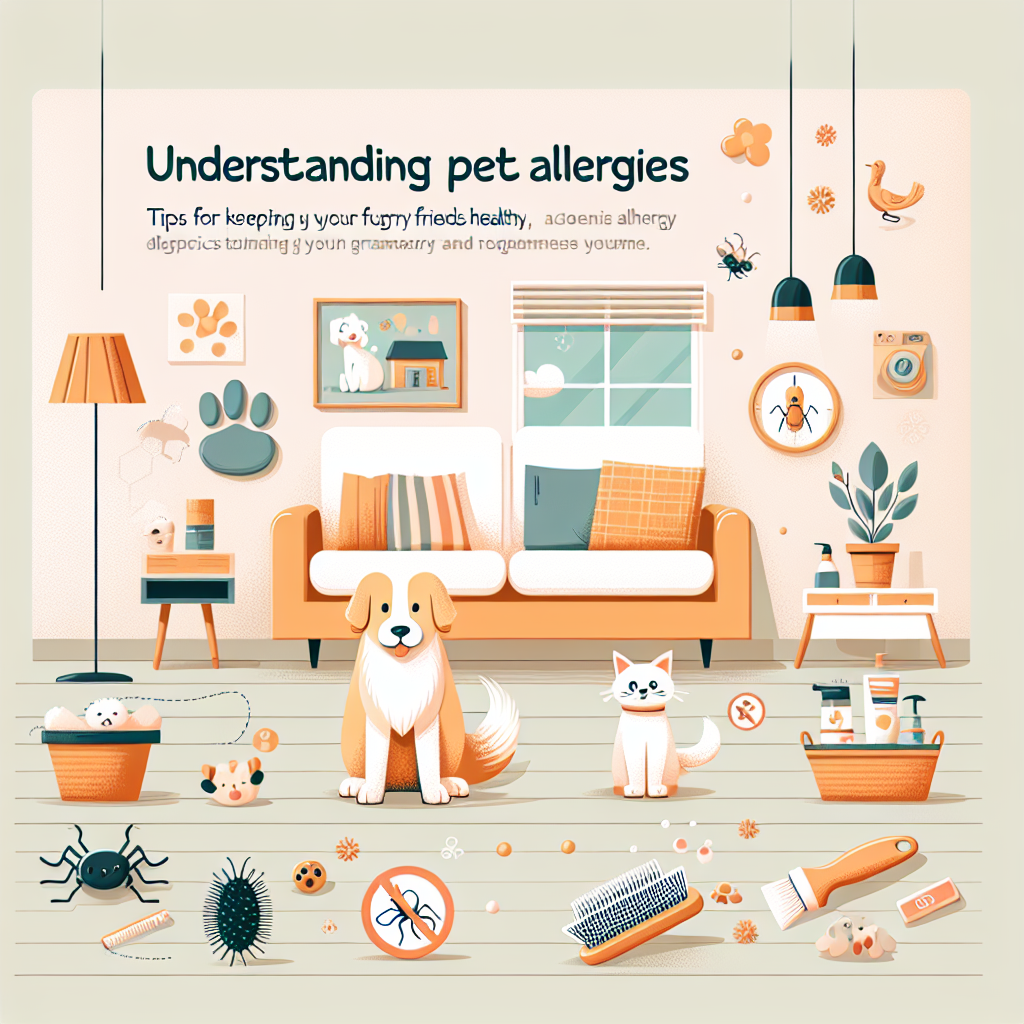As beloved members of our families, pets can sometimes face health issues that we might not fully understand. One common concern among pet owners is allergies. Just like humans, our furry friends can suffer from allergies, which may hinder their quality of life. If you suspect your pet has allergies, or if you’re simply looking to educate yourself, this guide will walk you through everything you need to know about pet allergies.
What Are Pet Allergies?
Pet allergies occur when an animal’s immune system overreacts to certain substances in the environment, known as allergens. These can include things like pollen, dust mites, mold, and even certain foods. Understanding the cause is essential for managing your pet’s health effectively.
Common Allergens
- Environmental Allergens: Grass, pollen, and mold spores are frequent triggers, especially during seasonal changes.
- Food Allergens: Ingredients such as beef, chicken, dairy, wheat, and soy can provoke allergic reactions in pets.
- Flea Allergies: For some pets, a flea bite can result in severe itching and skin irritation. This is particularly common in dogs.
Recognizing the Symptoms
Being vigilant about your pet’s behavior can help you catch allergies early. Here are some common symptoms to look out for:
- Itching and Scratching: If your pet is constantly scratching or biting at their skin, it may indicate allergies.
- Red, Inflamed Skin: Allergic reactions can cause skin to become red and irritated.
- Ear Infections: Frequent ear infections can be a sign of allergies, particularly if they are recurring.
- Digestive Issues: Vomiting, diarrhea, or other gastrointestinal issues may signal a food allergy.
Diagnosis: Finding Out What’s Wrong
If you notice any of the above symptoms, it’s important to consult with a veterinarian. Diagnosing pet allergies can be complex. Here are common methods vets use:
- Medical History Review: Your vet will ask about your pet’s diet, environment, and symptom onset.
- Skin Tests: Some vets may perform skin tests to identify specific allergens.
- Blood Tests: These tests can help determine your pet’s sensitivity to various substances.
Treatment Options
Once allergies are diagnosed, your vet will recommend treatment options based on your pet’s specific needs. Here are some common treatments:
Medication
- Antihistamines: These can alleviate symptoms like itching and sneezing.
- Steroids: In more severe cases, steroids may be prescribed to reduce inflammation and itching.
- Immunotherapy: This involves gradually introducing the allergen to help desensitize your pet’s immune system.
Dietary Changes
For food allergies, switching to a hypoallergenic diet is often beneficial. There are various commercial options available, or you may consider a homemade diet with guidance from your vet.
Environmental Management
Reducing exposure to allergens can also significantly improve your pet’s condition:
- Regular Cleaning: Frequent vacuuming to remove dust and allergens helps create a safer environment.
- Allergen-Free Zones: Designate certain areas in your home, like your pet’s bed, as allergen-free to provide a safe space.
- Air Purifiers: Using HEPA air purifiers can help remove airborne allergens in your home.
Preventive Measures
While some allergies are unavoidable, there are proactive steps you can take to minimize your pet’s risk:
Regular Vet Check-ups
Routine veterinary visits can help catch any potential issues before they develop into full-blown allergies.
Proper Grooming
Regular grooming helps reduce allergens trapped in your pet’s fur. Brushing, bathing, and regular nail trimming can keep your pet comfortable and healthy.
Flea Prevention
Keeping fleas at bay is crucial, especially for pets with flea allergies. Use veterinarian-recommended flea prevention methods to keep your pet itch-free.
Monitor Seasonal Changes
During high pollen seasons, keeping your pet indoors during peak hours can help reduce exposure to environmental allergens.
Final Thoughts
Understanding pet allergies is key to ensuring your furry friend leads a healthy, happy life. Recognizing symptoms, making dietary adjustments, and seeking veterinary support can go a long way in treating and preventing allergies. With the right approach, you can help your pet thrive and remain comfortable in their environment. Remember, you are your pet’s best advocate, and being informed is the first step toward their health and well-being.




